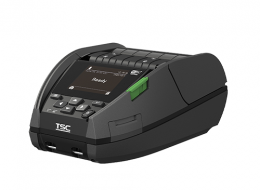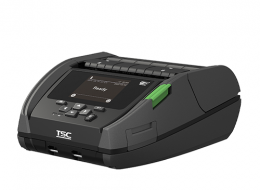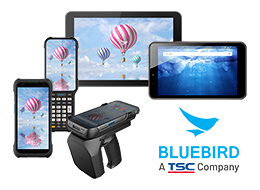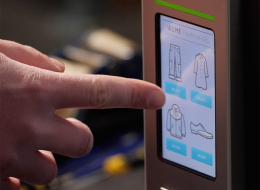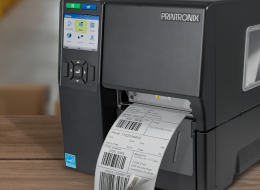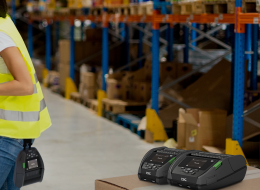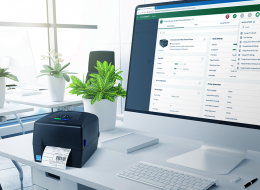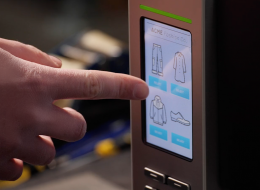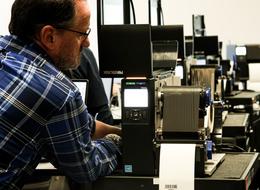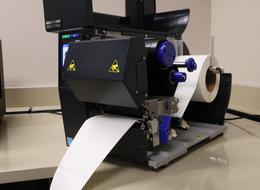Welcome to Our Blog
Get the latest information on new products and solutions, trending industry topics, best practices, tips and tricks, and much more.
Automotive
1429
/en/blog/automotive
Barcode Inspection
418
/en/blog/barcode-inspection
Cannabis
1430
/en/blog/cannabis
Company News
415
/en/taxonomy/term/415
Cybersecurity
1464
/en/blog/cybersecurity
Events and Tradeshows
1421
/en/blog/events-and-tradeshows
Food & Beverage
1426
/en/blog/food-beverage
Healthcare
1425
/en/blog/healthcare
High Resolution
414
/en/blog/high-resolution
Industry Trends
1419
/en/blog/industry-trends
Manufacturing
1424
/en/blog/manufacturing
Mobile Printing
1420
/en/blog/mobile-printing
Partner Perspectives
1461
/en/blog/partner-perspectives
Remote Printer Management
1432
/en/blog/remote-printer-management
Retail
1423
/en/blog/retail
RFID
416
/en/blog/rfid
Software Solutions
1433
/en/blog/software-solutions
Standalone
419
/en/blog/standalone
Supplies
417
/en/taxonomy/term/417
Supply Chain
1463
/en/blog/supply-chain
Tips & Best Practices
1431
/en/blog/tips-best-practices
Transportation & Logistics
1422
/en/blog/transportation-logistics
Warehouse & Fulfillment
1427
/en/blog/warehouse-fulfillment
In our interconnected digital world, businesses of all sizes—from local shops to global logistics firms and retail chains—rely on a vast network of connections to operate. While bringing untold benefits, these connections are also potential entry points for unscrupulous actors to access, breach, or disrupt enterprise systems. Among these entry points is your thermal printer.
As more industries, from logistics and manufacturing to retail and healthcare, adopt an increasing number of enterprise mobile computers (EMC), organizations face growing attack surfaces—not from the devices themselves, but from gaps in security and a lack of lifecycle management. Therefore, it is more important than ever to have a robust digital defense.
In our interconnected, digitalized world, cybersecurity isn't just an IT concern—it's a fundamental necessity. However, navigating through the multitude of security measures available and evolving threats can quickly become overwhelming.
Since coming into effect on July 25, 2024, EU’s Corporate Sustainability Due Diligence Directive (CSDDD) requires retailers to demonstrate clear and measurable sustainability outcomes. Retailers today face increasing pressures from regulators, investors, and consumers to visibly commit to sustainability.
In today’s retail environment, rising customer expectations and the growing complexity of omnichannel operations make accurate inventory management a must-have. Poor inventory accuracy doesn’t just impact operations—it results in lost sales, shrinkage, and a diminished customer experience.
Distribution centers (DCs) are the foundation of modern retail fulfillment. In a landscape defined by speed, precision, and customer expectations, DCs largely shape how quickly and accurately inventory flows across the entire retail network. As fulfillment complexity grows, there is no room for bottlenecks, blind spots, or outdated systems.
In unified commerce, the store has become more than just a point of sale—it's now a fulfillment hub, a service point, and a brand experience center. Store teams play a critical role in retail transformation—but they can only succeed when empowered with timely data and adaptive technologies. Empowering store execution means bridging the gap between business vision and day-to-day execution.
Building on our previous discussion of item-level tracking and digital transformation, this article examines how GS1 Digital Link and item-level tracking combine to connect physical products with rich digital data. Adopting these new standards helps retailers unify operations, improve traceability, and enhance customer engagement—key advantages in today’s competitive landscape.
In our previous blogs, we explored how seamless shopping and swift fulfillment are reshaping retail. Driving these changes are key digital initiatives—such as item-level tracking with RAIN RFID, Digital Product Passport (DPP), Digital Link, and Sunrise/ Ambition 2027 (2D barcodes)—that enable real-time visibility, reinforce compliance, and build stronger customer trust.
Did you know that many industries, including retail, healthcare, logistics, and manufacturing, are increasingly adopting RFID technology? The driving force behind this is their desire to streamline operations with automated data collection and real-time visibility.

